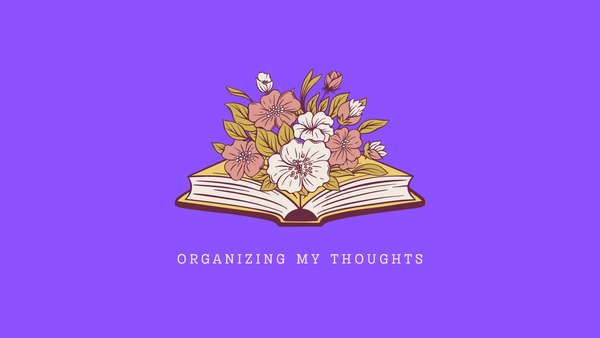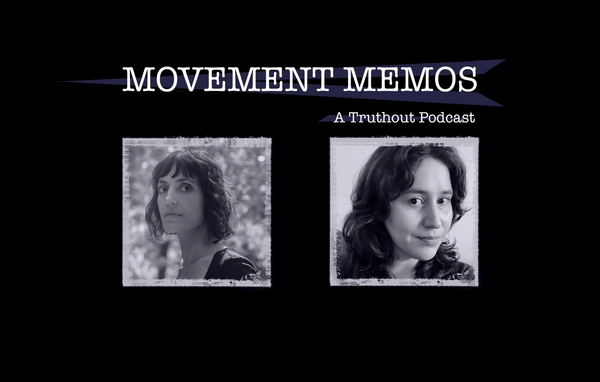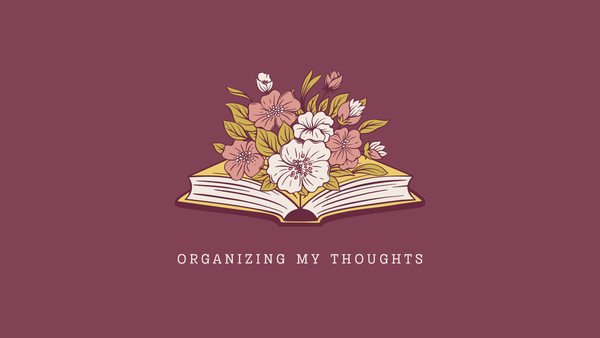Fascism in Florida, The State of Antifascism and Thinking About Electoral Defense
"People should always be planning community safety initiatives at all times no matter what the climate feels like," says Shane Burley.
When my friends and I discuss our worries, two topics tend to rank highly on our lists of concerns: the climate crisis and the rise of fascism. My fixation with these topics doesn’t make me a lot of fun at parties, but it does lead to some worthwhile analysis and discussion. When it comes to fascism, there’s no one whose insights I trust more than my friend Shane Burley, who regularly fields my questions about just how fucked things are and what we can do about it. In this conversation, I got Shane’s thoughts about what to expect in Florida, the need for community defense organizing, the state of antifascism, and what we should be reading right now.
Kelly Hayes: You and I have talked a lot in the past about right-wing violence, but after the recent white supremacist attack in Jacksonville, Florida, in which a white gunman killed three Black people at a Dollar General, I am wondering what your thoughts are on the state of right-wing violence in the U.S. Florida has been a major site of right-wing agitation, thanks to Ron DeSantis, and I feel like we should expect more upheaval around the Trump indictments. So what's your take on what's happening and what we should expect?
Shane Burley: So Florida’s situation is the result of multiple different strands of the far-right, some of which are tacitly at odds with one another. So the recent shooting was, as I wrote recently, the result not of a lone wolf as is often alleged, but the result of long-game organizing and propagandizing from white supremacists (including those in office). The forces that are in Florida are somewhat unique in that they are one of the few places having a resurgence of organized and blatant neo-Nazism, this time in the form of the Goyim Defense League, Order of the Black Sun and others who are doing explicitly antisemitic flash mobs, banner drops, and other in-real life actions. These include signs that say things like “Have You Thanked Hitler Today?” and are really Jewish focused, demanding the hanging of Jews, openly saying that Jews are the center of all that is wrong in modern society. There have been a lot of large actions (large for them), coming from the Nazi crowd and we should think of this as qualitatively different than the world of Trump or DeSantis, who each have their own crews. The Nazis are explicitly revolutionary and therefore see both candidates as anathema, and the various neo-Nazi crews have made explicit in their messaging just how much they hate DeSantis. That said, the rhetoric of both Trump and DeSantis normalizes racism and therefore primes potential recruits to be more vulnerable to neo-Nazi messaging. The mass shooting we saw [in late August] is exactly the kind of consequence that comes from unchallenged neo-Nazis like these, but we have, thankfully, seen Florida antifascists taking action.
Florida’s politics are a unique beast, with many of the right edge of the GOP coming from constituencies that are not fully reflected in other states: right-wing Jewish folks affiliated with the further right edge of Zionism, Cuban-American anti-Communists, and, now, the DeSantis effect. This is bringing it into the campus world, and the groypers and followers of Nick Fuentes are finding that a natural home because of their young age and history in campus organizing. We also have had efforts by folks affiliated with groups like the Proud Boys to infiltrate local GOP institutions, the kind of ground game organizing that gives them access to a whole new type of audience.
While the Trump indictments will motivate some of these groups, the more explicit neo-Nazis are not exactly Trump fans because of his policies towards Israel, the fact that his daughter is an Orthodox Jew, he bombed Syria, and just the fact that he basically bails out banks and wall street (neo-Nazis fashion themselves as anti-finance radicals). I think we will see more upheavals, but the Trump indictment may not be the center of it, there will be multiple strands coming together from different camps. But what they will have is an echoing effect, with one pushing the Overton Window for the other, and allowing Florida to fashion a relatively novel synthesis, one that both invites minority groups in while cultivating a radically racist politic.
KH: Should people be planning community safety initiatives around the 2024 election? Personally, I observed a lot of last minute thinking around that kind of thing in 2020, and I am really hoping that people are thinking about safety planning and threat assessments well in advance this time around.
SB: People should always be planning community safety initiatives at all times no matter what the climate feels like. Safety and self-defense is just the foundation of creating a caring, compassionate, secure community that presents an alternative to the carceral state. The election brings out some of the worst figures of the far-right, so it usually peaks in an election window, but because we are now always sort of in an election window that doesn’t make this quite as much of a binary as it might have been previously.
Much of the far-right of the GOP will be split on DeSantis and Trump, and that lack of unity means a lack of effective organizing for their side. Once Trump actually wins the primary, however, he will be starting at a much higher level of conspiracism than either of his two prior campaigns. His message will now be that the state is fully captured by the cabal and that legally sanctioned reform is impossible, the perfect rhetorical recipe for revolution. Again, some people will hear it that way, some people won’t, and some people will simply use it opportunistically, but, regardless of which camp dominates, it will increase the potential for violence.
That said, the January 6th prosecutions, particularly of the Proud Boys and the Oath Keepers, could have a chilling effect, at least on the more organized factions. The flip side to this, however, is that it can lead to seemingly impulsive acts of violence based on the cultivation of impotent nihilism. If globalists have taken over and seized the state, and they put you in prison for trying to free the election, why not go down in a hail of glory?
One thing that needs to be considered is that effective safety plans cannot be made in a crisis, they need to begin in advance of one. So creating those networks, educating people on tools and skills, and creating community consensus about managing threats is really important at any stage. If we can start building those with the urgency that is anchored to everyday needs of security, then people will be prepared when the extraordinary takes over. (I recommend Margaret Killjoy’s podcast Live Like the World is Dying to learn more on community safety and preparedness.)
KH: How would you describe the state of antifascism in the U.S. at this moment? Is there any organizing that you are particularly excited about?
SB: There have been fits and starts the last couple of years. There was a large influx of people getting involved in antifascist organizing, and a lot of those people have moved onto something else once the flashpoints that drew them in have settled (to a degree). Many of the established antifascist organizations, many of which existed prior to the rise of the alt-right, continue to do this work and do so with a dependable strategy. There have also been confusion about tactics, some mistakes, and also the lack of tactical efficiency that often comes with mass movements.
The reality is that only mass antifascism can take on the threat we are facing, but we can’t expect those mass movements to be tactically perfect right out of the gate. Instead, mentorship and history needs to be made available. Likewise, all of the dysfunction that we see daily inside of the left are reproduced in antifascist spaces as well, and in some of the most high profile incidents that tarred parts of the movement we can see the problems as having common roots. This is not unique to antifascism, it has the same issues that all social movements deal with, the only difference is that it grew incredibly quickly and became the right’s primary obsession. The critique can be leveled at the entire left: we need to be kinder with each other, we need to support one another, accountability means growth and transformative approaches, and movements depend on personal difference and disagreement. We need a left that avoids unnecessary divisiveness while also maintaining principles, and when we consider antifascism, which is itself about separating the acceptable from the unacceptable, activists have to be even more cognizant of that.
The hope is that, like any social movement, growing pains result in a stronger social movement, one where people acknowledge mistakes, take advice from those more knowledgeable than them, and set boundaries and lines about what this movement means and what useful tactics are. The biggest thing we have seen, and the most important, is the growth of a “diversity of tactics,” quite literally people taking different approaches based on their differing positions and skill-sets. That is what turns a movement from a small monolith into something capable of changing society. One of the biggest problems coming out of 2016 and 2017 was the incredibly narrow idea of what antifascism was, and that has changed dramatically. The other important development is the close intersections antifascism has had with other, more established social movements, such as labor, housing, and mutual aid groups. These movements must depend on each other and together create the intersectional web necessary to do more than simply respond to threats. The far-right is also always changing, and the last two years have proven that exceptionally true. The alt-right has declined, white Christian nationalism has become a more common branding, open neo-Nazism and accelerationism has returned, and formal organizations are giving way to horizontal social networks. So effective antifascism means remaining like water: be fluid enough to respond to changing circumstances.
KH: What have you been reading lately that you would recommend to people who want to organize against fascist threats?
SB: There are a number of great new books I definitely recommend people check out. The recent book It Did Happen Here, based off of the podcast produced by KBOO Community Radio in Portland, is one of the most incisive and colorful histories of antifascism that has been produced in the last decade. It tells the story of the different groups that battled white nationalists in Portland in the 1980s and 1990s, from antiracist skinheads and Anti-Racist Action (ARA) to the Coalition for Human Dignity (CHD).
There are a number of great social movement histories that themselves I think are essential, despite not always being just about antifascism. Deep Care by Angela Hume is one of the most important books ever written about abortion access, Practical Anarchism is an essential read on mutual aid (and I would add Let This Radicalize You as well), A World Without Police on police abolition by Geo Maher, the magnum opus Self-Defense by Elsa Dorlin, and Disaster Anarchy by Rhiannon Firth. If you are interested in some of the latest writing on conspiracy theories, I’d start with Mike Rothschild’s new book on Rothschild conspiracy theories, Jewish Space Lasers, Off the Edge by Kelly Weill about flat earthers, and The Birchers, a great deep dive into the history of the John Birch Society and how it created the model for the modern right. For more on the dominating effects of white Christian nationalism, I’d recommend Preparing for War by Bradley Onishi and The Flag and the Cross by Samuel Perry and Philip Gorski. For a fantastic read on the recent American far-right, you could do no better than The Age of Insurrection by Dave Neiwart, and We Are the Proud Boys by Andy Campbell is definitely worth a read. I also want to send the message to everyone that they need to put down the non-fiction once in a while and pick up fiction books and comics, particularly genre fiction. A joyous life is not made by reading books about the Klan, so I’d recommend people start with some of the fantastic recent works by Margaret Killjoy, Nick Mamatas, Eric LaRocca, Kristi Demeester, Stephen Graham Jones, adrienne marie brown, and a whole bunch of others.




